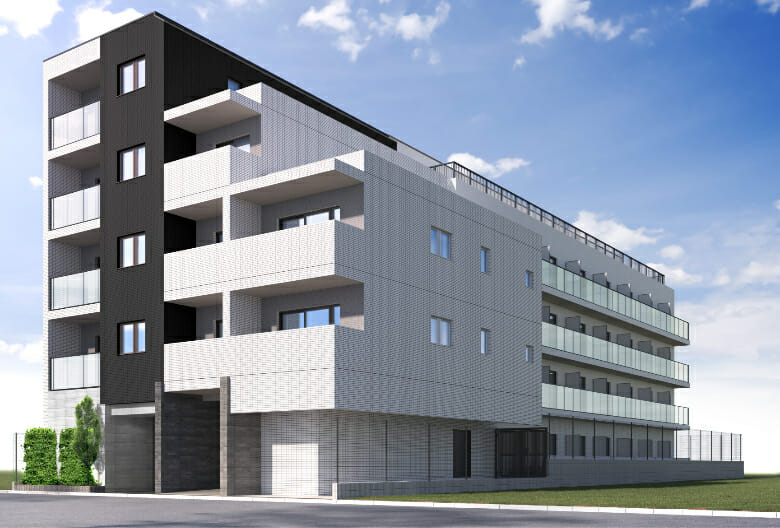Japan’s multi-family market is set to continue to be a top investment target for institutional investors despite a decline in average yields in the sector, with senior industry executives pointing to dependable tenant demand and reliable returns as key advantages.
“The entire Japan (market) and its major cities continue to be a highly sought-after sector,” said Jason Lee, CIO and head of private equity for Asia Pacific at AEW. “From a portfolio management perspective, Japan multi-family continues to provide a very stable profile… I think it will continue to be a strong sector in terms of demand from investors as well as demand from the local population.”
Lee’s views were echoed by experts from Varsity Group Asia Pacific, JLL and Greenberg Traurig, all of whom were speaking in a panel on the Japan market in the Mingtiandi APAC Residential Forum on Tuesday, which was sponsored by Yardi.
With rental apartment assets growing in favour globally, and Japan gaining ground as an investment destinations due to its market scale and attractive lending conditions, Tokyo has dominated rental residential deals in Asia Pacific, including accounting for 43 percent of all multi-family transactions in the region by value over the past five years, according to figures from MSCI.
ESG Adds Value
While yields on trades of income earning apartment assets have slid to an average of 3.2 percent in the second half of 2022, according to MSCI, Rush Desai, co-founder and chief executive of Varsity Group Asia Pacific, said lower borrowing costs in Japan mean investors can still achieve cash yields.
- Jason Lee, Managing Director, Senior Portfolio Manager, CIO & Head of Private Equity, Asia Pacific, AEW
- Rushabh Desai, CEO, Varsity Group Asia Pacific
- Paul Davis, Senior Director, Co-Lead of International Clients, Japan Capital Markets, JLL
- Joel H. Rothstein, Shareholder and Chair, Asia Real Estate Practice, Greenberg Traurig
After leading some of Japan’s largest apartment acquisitions as head of Allianz Real Estate for Asia Pacific, Desai set up the alternative investment platform late last year with the founders of Australian student accommodation specialist Scape and sees opportunities for experienced managers to go beyond average yield levels in the living sector.
“One of the things we want to do at Varsity is to explore the possibility of a branded solution or living solution in Japan,” he said. “Bringing in value-add components to existing real estate and if there is one market in the world which begs for a change when it comes to residential, I think it’s Japan.”
Desai also expects ESG-compliant properties with higher levels of sustainability and efficiency to outperform, both in terms of rental income and resale value.
“E (environmental) gets you a better yield, S (social) gets you better rents. So I think if you play it correctly, and if you have a service offering, especially in an environment where people are working increasingly from home, I think tenants will be willing to pay you a better rent,” he said.
“We will come to a point in a lifetime where institutional investors will not touch anything which is not ESG compliant. From that perspective, the tradability of an asset is going to depend on the ability to demonstrate ESG,” he added.
Forward Sales Gain Attention
While focusing on ESG credentials provides avenues to greater returns, many investors are also taking on more development risk to gain pricing advantages and achieve greater control over building design.
Joel H Rothstein, chair of the Asia real estate practice at law firm Greenberg Traurig said that, based on deals that his team have been involved in, 30 to 40 percent of institutional investors are acquiring assets through forward purchase agreements signed before the projects are completed.

AEW acquired a set of four Tokyo assets last year
“People have gotten comfortable in recent years with forward purchase arrangements, and frankly, we haven’t had any deals where people got burned under these forward purchase arrangements as of yet.”
The early-stage deals can also be structured to require a successful launch before the deal can be completed, as developers look for ways to mitigate the construction, development and leasing risks that companies may face in such schemes.
“We have a feature where the purchaser has the ability to basically facilitate pre-leasing activity before the construction is completed and you may even have, as a condition to closing, a requirement that you have reached certain pre-leasing occupancy levels,” Rothstein added.
Youth Movement
Paul Davis, senior director and co-lead of international clients for Japan capital markets at JLL, agreed with Rothstein’s comments on the growing popularity of forward purchase agreements, with international investors forging closer ties with Japanese builders to get these deals done.
“Finding local developers that can provide a pipeline for purchases on a forward commitment basis and then getting assets stabilised and sold to a core vehicle is definitely an emerging trend,” David said, while noting that properties with high ESG credentials are most in demand.
In part as a result of that movement towards sustainable properties, investors are focusing on newer buildings as they assemble target lists.
David said, “there has definitely been a trend over the last few years toward a preference for younger assets,” with the average age of assets traded falling from an average of 10 to 15 years in the past to five to 10 years more recently.
Australia Up Next
MTD TV will return on Thursday, 23 March with a panel dedicated to residential investments in Australia for the fourth and final session in its APAC Residential Forum this year.
To discuss opportunities in prime residential developments, build-to-rent projects and student accommodation, Mingtiandi founder Michael Cole will be speaking to top executives from Nuveen Real Estate, Phoenix Property Investors, GreenFort Capital and Scape.
Joining the Thursday session will be Nuveen director of housing for Asia Pacific, Ben Taylor and Trent Winduss, a Phoenix partner who serves as head of Australia investments and Asia structured debt investments for the private equity investment group.
Also joining the discussion are Adam Vaggelas, founding partner of investment management firm GreenFort Capital, and Stephen Gaitanos, managing director and group CEO of student accommodation provider Scape.




Leave a Reply